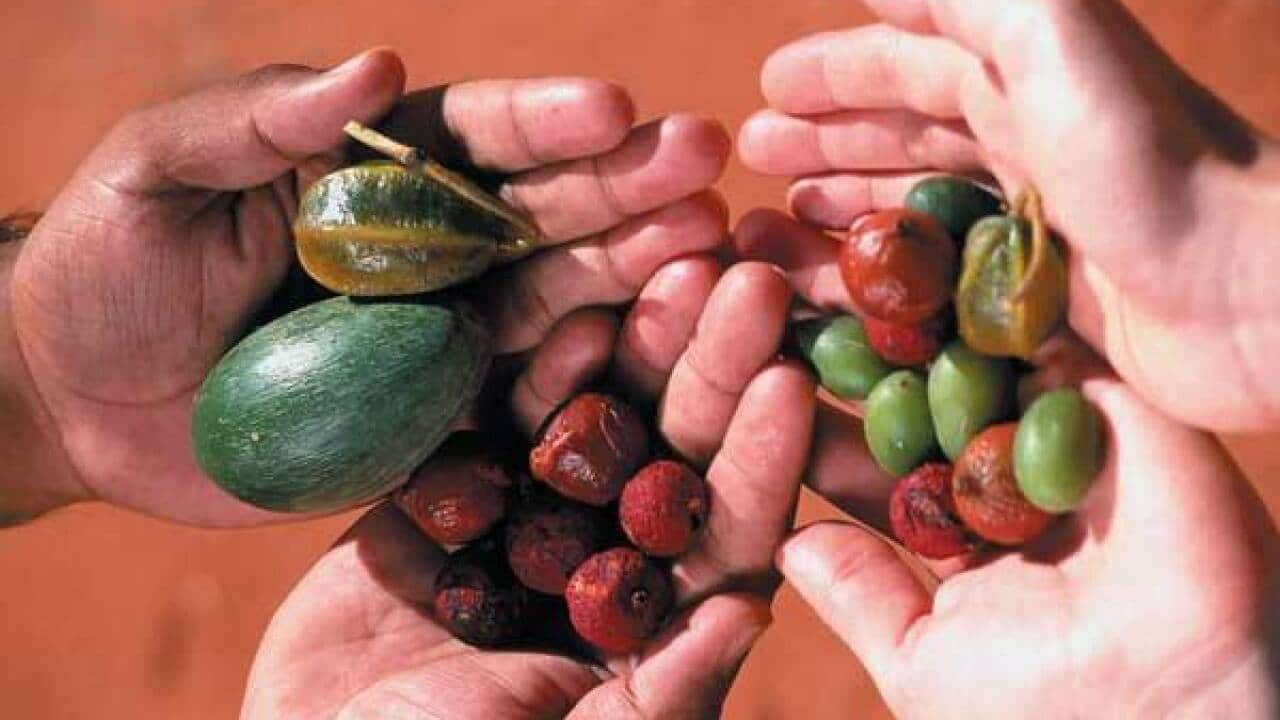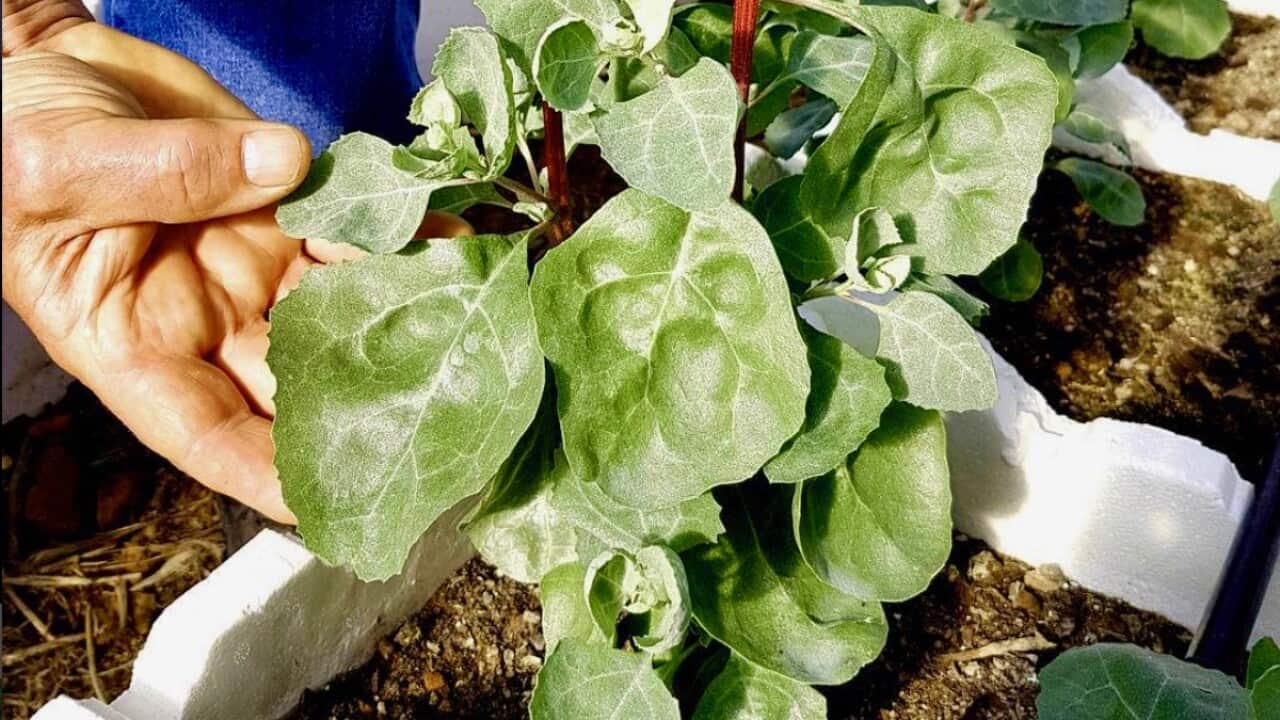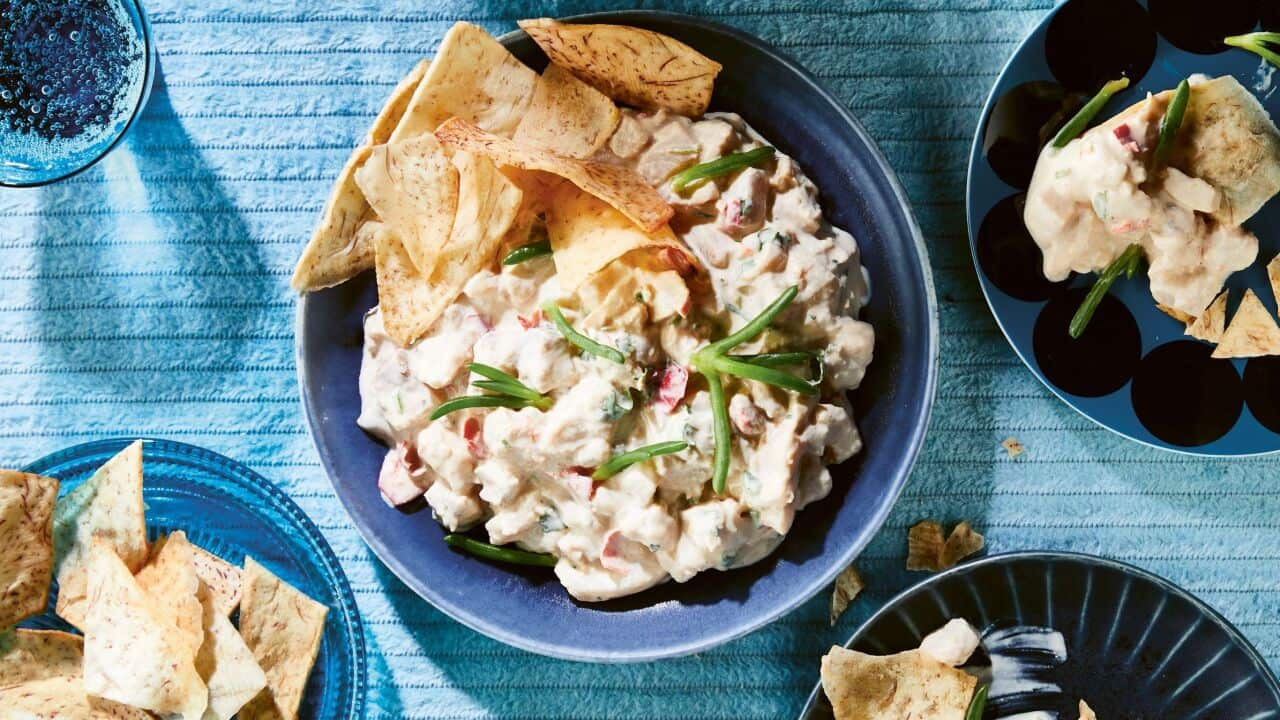is a proud Bininj man who champions bush tucker, such as an-marabula. This Indigenous fruit has a velvety skin and is described as a native peach, but "it's actually a Kakadu plum", he says.
Its earthy sweetness adds a distinctive flavour to each fizzy drop of the he recently created with Sydney's .
The Kakadu landscape in the Northern Territory currently inspires his work, but it's also where he grew up in the 1980s (on Patonga Homestead, now known as Murdudjurl). "Originally, it was built as a safari camp," he says. International hunters would fly in, hoping to catch wildlife, such as crocodiles, magpie geese and barramundi.
Tyler recalls sitting with elders under the mango trees, learning how to weave pandanus, or heading down to Jim Jim Creek, where waterlilies thrived.
"We'd go camping at Death Adder Gorge and the old people would tell us about the rock paintings and we'd swim and camp there," he recalls. They'd venture outside of Kakadu to , where they'd learn about saltwater Country and fish for stingrays. The Indigenous entrepreneur remembers "mucking around with sharks" there, foraging with elders at Alice Springs, as well as coming across bush apples in the desert (which are different to the white ones featured in the picture book he co-authored in 2021). The idea for his Kakadu Kitchen business, naturally, began in the area it's named after. In 2015, he noticed three chilli plants at his mother's place. "What if I make a little garden at the back for you, mum?" he asked her. They planted pawpaws and other fruit, as well as Indigenous ingredients, such as native lemongrass and bush apples. "We ended up with over 200 banana trees," he says. "And we were sending bananas all over Kakadu and to family in Arnhem Land."
The idea for his Kakadu Kitchen business, naturally, began in the area it's named after. In 2015, he noticed three chilli plants at his mother's place. "What if I make a little garden at the back for you, mum?" he asked her. They planted pawpaws and other fruit, as well as Indigenous ingredients, such as native lemongrass and bush apples. "We ended up with over 200 banana trees," he says. "And we were sending bananas all over Kakadu and to family in Arnhem Land."

Ben Tyler. Source: Helen Orr
What if I make a little garden at the back for you, mum?
What started as a community garden grew to include many things: an celebrating knowledge about native foods, a business showcasing bush tucker at events across Australia, as well as a market stall offering salads and juices flavoured with Indigenous ingredients. Tyler recalls swirling Kakadu plum through the drinks – and how popular they became. "People still ask me for them, years later."
Nowadays, he's gaining attention for the canned native peach bellini he's produced with non-alcoholic company Altd Spirits, launched at this year's festival with a at Jabiru's , which offered tastings of this Indigenous remix of the .
"We spent a lot of time on the phones talking about recipe ideas," Tyler says. When they finally decided to produce a sparkling bellini with Kakadu native peaches, the ingredient happened to be fruiting at the time.
"Mum really loved the idea of us doing something with the an-marabula," he says. Hardly anybody eats it anymore, she told him, and even black cockatoos would avoid trees with the fruit. But its earthy, nectary sweetness was ideal for the alcohol-free cocktail that Kakadu Kitchen and Altd crafted.
We went out and foraged for the native peaches.
For Tyler, it was also important that he received cultural permission to harvest the ingredient from Indigenous elders, which is something he's done for all his endeavours involving bush tucker. "Kakadu is Aboriginal land," he says. And Bininj and Mungguy people form part of the board who manages the national park. Tyler was told "gamak" – yes, he could use the an-marabula on Kakadu. "Myself, mum and my grandson, we went out and foraged for the native peaches," he says.
Triggs and Tyler created a limited run of 300 cases for the canned native peach bellini (with remaining stocks available at , and other ) and are launching a campaign to support upcoming booze-free creations: these beverages show how we can reimagine Australian drinking culture and spotlight native ingredients, too.
"The next drink we want to do is a non-alcoholic mojito," Tyler says. They'll be flavoured with Indigenous ingredients from Kakadu as well, such as the bush cabbage (which has "nice coconut flavours") and bush almonds (they have an appealing smoky taste – an after-effect of traditional patchwork burning that happens in the area).
The Bininj entrepreneur might have started Kakadu Kitchen with three chilli plants at his mum's place, but the inspiration for it encompasses 65,000 years of Indigenous knowledge, he says, and sprawls across the national park's .
"That's the essence of what I've tried to bring into these products," he says. Kakadu Kitchen should feel like "being out on Country", he adds.
The entrepreneur's hope is to grow bush food in a vertical farm setting – perhaps rehabilitate a community rubbish dump and renew it with the promise of native ingredients. "That's the sort of vision that I've had. And I'm slowly, in the background, just sort of taking small steps towards that."
MORE INDIGENOUS AUSTRALIAN FOOD

Three Indigenous Australian ingredients to know if you're new to First Nations food






